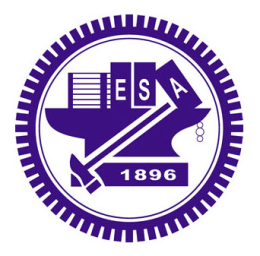
National Chiao Tung University
Founded in the suburbs of Shanghai at the suggestion of the Minister of Foreign Affairs of the Ching Dynasty in 1896, the National Chiao Tung University was first named as the Nanyang College. It was founded 16 years before the birth of the Republic of China and to urgently meet the need to introduce western civilization into the country.
Initially, Politics, Law and Translation of Western Books were the main focus of the school. Soon it was named as the Vocational College of Higher Education and operated under the Ministry of Post and Transportation. New vocational courses were included, like the Railway Management, Shipping Management. Electrical Engineering, and Business, and the school played a vital role in science and engineering education in the country.
The Ministry of Post and Transportation decided to expand the college with the creation of three new campuses: the Railway College in Tang-Shan, the Railway Management College in Peiping and the Merchant marine College in Wu-Sun.
In 1912, after the RPC was founded, the four campuses were reorganized and under the responsibility of the new Ministry of Transportation. It changed the name of the Vocational College of Higher Education, the Railway College and the Railway Management College into the Shanghai Industrial College, Tang-Shan Industrial College and the College of Management in Railway, Post and Telecommunications, respectively.
In 1926, the school’s Shanghai campus created its Institute of Industry, purely devoted to telecommunication research. Two years later the school assumed the name Chiao Tung University, which was run by the Ministry of Railways.
The Shanghai campus then evolved into four colleges: the College of Railway Management, the College of Civil Engineering, the College of Mechanical Engineering, and the College of Electrical Engineering. The College of Science followed by 1930, consisting of Mathematics, Science and Chemistry.
During the Chinese-Japanese war, the school transferred to the French concession in Shanghai and then to Chung Ching, Hsiang Tan, and Pin Yueh before it finally returned to its original location which happened after the war. However, it suffered another setback in 1949 when the communists took over China, dissolving the school.
In 1957, the alumni prodded for the reestablishment of the university, citing the need to have a school that focuses on developing the electronic industry for the national economy and defense. With the help of various government agencies, the school founded again at its present location in Hsinchu, Taiwan. Soon enough the school grew rapidly, establishing several departments and initiating a national-level electronics research project with the help coming from the National Science Council of Taiwan.
With its vision to educate students and to develop the electronics industry, its College of Engineering has been making waves for the school and has continually earned awards and recognition in the field of robotics. Their hard work came to fruition when a team of researchers from NCTU developed a robot that can recognize its owner’s face but can chase its enemy.
This robot, called Vision ONE, can distinguish family members from intruders. Another robot, the Nano-bio-robot, also won them a silver medal at MIT’s International Genetically Engineered Machine. This robot can monitor the status of bacterial infections. Despite being a neophyte in this event, the school managed to win the second place award.
Along with several researches and related programs, the school has already made significant improvement not only in humanistic concerns, but in technological advancement as well. With their intensive approach in the field of robotics, it will not be long until the school will see the results of all this hard work.